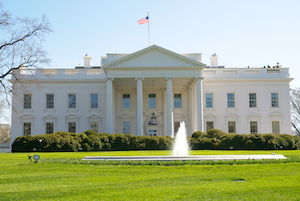 In observance of Presidents Day on Monday, Feb. 21, the ASPPA offices will be closed. Accordingly, ASPPA Connect will not be published on Feb. 21. ASPPA Connect will reappear on Wednesday, Feb. 23.
In observance of Presidents Day on Monday, Feb. 21, the ASPPA offices will be closed. Accordingly, ASPPA Connect will not be published on Feb. 21. ASPPA Connect will reappear on Wednesday, Feb. 23.
There are some presidencies that stand out, of course. But there also is an element of precedent. Here are a few.
William Henry Harrison (1841) has four distinctions:
1. The first member of the Whig Party elected president
2. The oldest man elected president up to that time, age 68 at his inauguration
3. The shortest term of office—exactly one month
4. First president to die in office
John Tyler (1841-1845) has a number of distinctions as well:
- He was the first vice president to assume the presidency at the death of the president. There was controversy over what he would be called and whether he was actual or acting president. Some detractors in Congress called him “His accidency.” Tyler made it clear that he was the actual president, and he returned, unopened, any correspondence he received that was addressed to him as “acting president.”
- Tyler was the second president to be censured by Congress (the first had been Andrew Jackson).
- Tyler is the only president to have been expelled from his own party; the Whigs were so angered by some of his actions that they did so in September 1841.
- Tyler is the president who fathered the most children—15; eight by his first wife and seven by his second.
- Tyler fathered his last children late in life. And so did one of those children. Consequently, a man born in 1790 when George Washington was in his first year of his first term of office as president had grandchildren born in the 1920s. Yes, the 1920s.
- Tyler retired to his estate, Sherwood Forest, near Williamsburg, VA. He was elected to the Confederate House of Representatives when Virginia seceded from the Union in 1861, but he died before he took office.
As for Zachary Taylor (1849-1850), he:
- was the first president to not have held elected office before; and
- had never even voted. Ever.
Andrew Johnson (1865-1869) had many distinctions:
- He remained a pro-union Southerner and stayed in the Senate as a Senator from Tennessee after his state seceded.
- He was the first president to have served as a military governor during an occupation; he was made governor of Tennessee when the Union conquered it.
- He is the only vice president to be from a political party other than that of the president—Abraham Lincoln was a Republican, and Johnson a Democrat; the idea was to create a national unity ticket in the election of 1864 during the height of the Civil War.
- He was the first vice president to assume office as president due to assassination.
- He was the first president to be impeached by the House of Representatives. He was not removed from office because the Senate did not vote to convict—by a single vote (a reminder that one vote really does matter).
- He was the first former president to later be elected to the Senate to serve as a Senator (by Tennessee).
William McKinley (1897-1901) was shot by an assassin at the Pan-American Exposition in Buffalo, NY. Ironically and tragically, if doctors had used the newly invented X-ray machine that had been unveiled at the exposition, he may have been saved.
Gerald Ford (1974-1977) came into office in a way that no other president ever has. He is the only president to not have been elected at all—at least not as part of a ticket. He was the Minority Leader of the House of Representatives, but when Spiro Agnew resigned as Vice President in 1973, President Nixon nominated Ford to fill the role of Vice President. Congress confirmed his ascension to that office, and when Nixon resigned in August 1974, Ford became the 38th president.
When Ford became vice president, he and wife Betty decided not to move to the vice president’s residence on the Naval Observatory grounds in Washington, and chose instead to stay in their house in Alexandria, VA, so as to not uproot their children. And that is why there is a residential street in Alexandria named President Ford Way—a tribute to his choosing to stay in Alexandria while he was one heartbeat away from the Oval Office.
- Log in to post comments
